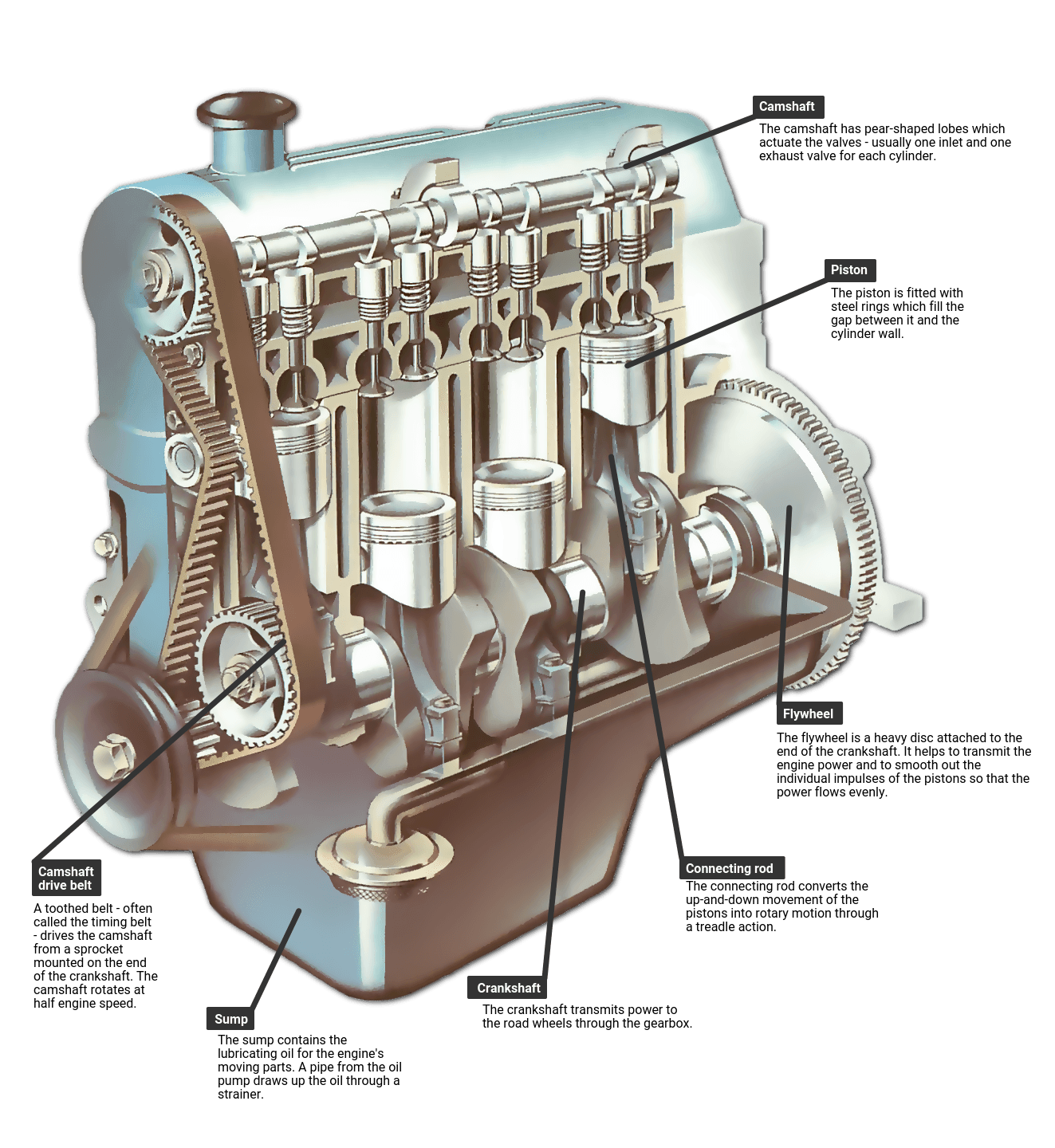Engines For Africa: Leading copyright of Costs Engines
Engines For Africa: Leading copyright of Costs Engines
Blog Article
A Total Overview to Choosing the Right Engine for Your Project
Choosing the suitable engine for your job is a vital decision that can substantially affect its general success. It is critical to carefully define your job needs, examine performance demands, and take into consideration user-friendliness alongside other necessary variables. Furthermore, comprehending the neighborhood assistance offered and inspecting expense ramifications can even more refine your option. Each of these components plays an essential duty in making sure that your chosen engine not only fulfills immediate goals yet also lines up with lasting ambitions. As we check out these factors to consider, you may find that the subtleties of each element disclose greater than initially anticipated.
Specify Your Job Demands
Specifying your job needs is an essential action in choosing the suitable engine for effective implementation. A detailed understanding of your task's objectives will direct you in determining the abilities and functions required from an engine. Begin by describing the scope of your project, consisting of the preferred performance, target audience, and the particular results you aim to achieve.
Following, take into consideration the technological demands that line up with your project goals. This includes evaluating the compatibility of the engine with existing systems, along with the programs languages and frameworks that will be utilized. In addition, evaluate the degree of scalability required to suit future development or modifications in need.
Budget constraints likewise play a crucial duty in defining your job needs. Establish a clear financial structure to guide your decision-making procedure, ensuring that the engine selected fits within your budget plan while supplying the necessary performance.
Evaluate Efficiency Requirements

Engines that support straight scaling are commonly better for bigger applications. Additionally, evaluate the engine's performance under different conditions, such as peak usage situations, to ensure it fulfills your dependability requirements.
Take Into Consideration Ease of Use
While technical specifications are vital, the ease of use of an engine can considerably affect the development process and total job success. An user-friendly user interface, clear paperwork, and streamlined workflows can substantially lower the understanding contour for designers, enabling them to concentrate on creativity and problem-solving rather than facing complex devices.
When assessing an engine's simplicity of use, think about the onboarding experience. A well-structured intro, full with tutorials and sample projects, can facilitate a smoother change for brand-new individuals. Additionally, the quality and comprehensiveness of the engine's documentation play a critical role; extensive overviews and API references can empower developers to fix and apply features efficiently.
An engine that enables for easy adjustments can be more straightforward, as programmers can customize it to fit their details needs without substantial trouble. Ultimately, selecting an engine that focuses on ease of use can lead to a much more satisfying and efficient advancement experience.
Assess Neighborhood and Assistance
The strength of an engine's Full Report neighborhood and support network can greatly influence a developer's experience and success. A vibrant area frequently indicates a riches of shared knowledge, resources, and repairing help that can enhance your project's advancement procedure. When assessing an engine, take into consideration the dimension and activity degree of its neighborhood. Bigger neighborhoods normally use extra discussion forums, tutorials, and third-party plugins, enabling programmers to discover solutions more efficiently.
In addition, review the accessibility of official support networks. Reputable paperwork, responsive client assistance, and regular updates are necessary for dealing with technical concerns and keeping your project on track. Engines For Africa. Energetic neighborhoods additionally promote cooperation, offering opportunities for networking and responses, which can be invaluable, particularly for independent programmers or small groups
Additionally, examine the existence of community-run events, such as meetups or hackathons. These events can enrich your understanding of the engine while attaching you with experienced customers and prospective my site collaborators. In recap, a durable neighborhood and support group not only improve growth but likewise create a setting for learning and innovation, eventually improving the probability of your task's success.
Compare Price and Licensing Choices
Spending plan considerations play an essential duty in picking the appropriate engine for your job, as the expense and licensing choices can substantially affect both temporary expenditures and lasting practicality. Engines For Africa. Different engines supply varying prices frameworks, which can consist of single purchase fees, membership designs, or revenue-sharing agreements based on your job's profits

Accrediting choices additionally vary significantly. Some engines are open-source, supplying versatility and community-driven support, while others may need exclusive licenses that restrict use and distribution. Comprehending the ramifications of each licensing model is crucial, as it affects ownership rights, future scalability, and possible legal responsibilities.
Final Thought
To conclude, selecting the proper engine for a task requires an extensive evaluation of defined job demands, efficiency needs, simplicity of usage, area support, and expense considerations. By methodically resolving these critical factors, decision-makers can make sure positioning with both present and future project needs. A knowledgeable option ultimately improves the possibility of job success, enabling effective source allocation and making best use of potential end results within the defined financial restrictions.
Picking the proper engine for your task is a vital decision that can dramatically influence its general success.Defining your project needs is a vital step in choosing the suitable engine for effective execution. A thorough understanding of your project's purposes will certainly lead you in determining the capabilities and functions required from an engine.Once you have a clear understanding of your project requires, the next step is to review the efficiency needs of the engine.In final thought, choosing the proper engine for a project demands a thorough examination of specified task demands, performance requirements, ease of use, neighborhood assistance, and price considerations.
Report this page